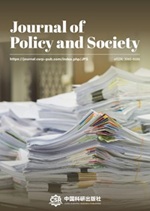Research Data Policy
Aligned with COPE’s recommendations on data transparency and reproducibility, CSRP urges authors to make the underlying data, code, and materials publicly accessible, to register clinical trials, and to follow recognized reporting standards. Datasets that are too large or complex for supplementary files should be deposited in trusted repositories. Authors who do so are asked to include a data-availability statement that specifies where the data can be found and any access restrictions imposed for privacy or biosecurity reasons. Sharing and re-using high-quality research data accelerates both scientific discovery and economic innovation.
1. Data-sharing practices
Shared data should conform to the FAIR Data Principles: every (meta)data set must carry a globally unique, persistent identifier, and sources must be cited accurately. Journals and institutions are expected to cooperate in monitoring the validity and credibility of the entire research cycle. Authors should foreground their own primary data and, whenever possible, release accompanying data sources at the earliest opportunity.
When data contain confidential, private, or personally identifiable information, authors must remove or mask all sensitive elements and share the data only under the mandatory disciplinary guidelines.
Unpublished data: if questions arise about the scientific rigor of a data set that has not yet been published, the journal will raise those concerns with the provider, ask the corresponding author for a written response and any supporting documentation, and determine whether other works are affected.
Published data: if a published data set linked to a manuscript is suspected to be unsound, the journal will notify any other journals that have published results derived from that data set, summarizing the problem and the steps taken. Authors must supply a satisfactory explanation or update. Should the flaws be serious enough to undermine the manuscript’s conclusions, the authors are expected to withdraw the paper; otherwise, the journal will reject it.
2. Data citation
Datasets held in external repositories should be acknowledged in the reference list. If a data set has already appeared in print, both the original paper and the repository entry must be cited. Editorial staff will verify and, if necessary, correct the citation before the article is published.
The minimum elements required (per DataCite) are:
- Creator(s)
- Year the data were released or published
- Title of the data set
- Repository or archive name
- Persistent identifier (e.g., DOI)
3. Data repositories
Authors should upload their data to a subject-specific community repository or to a general-purpose repository (e.g., an institutional, funder, or university archive open to its researchers) that meets disciplinary standards. To guarantee persistent linking, the publisher advises choosing a repository that assigns a DOI.
Curated registries such as FAIRsharing.org and re3data.org can help identify suitable archives. Widely used general repositories include:



